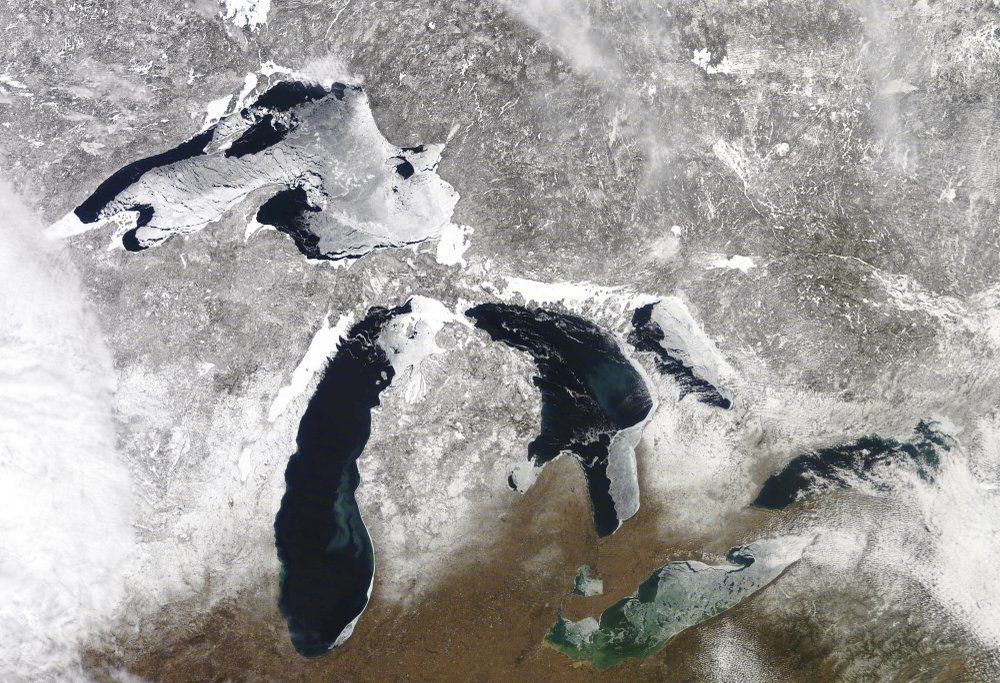For Canada Water Week, March 16-22, Environmental Defence is celebrating water! Each day this week, we’re posting a new blog that will explore how our programs all have a connection with water. Today, we’re featuring our Clean Economy Program and how a clean economy can help our water sources.
We all need clean water. We also all need a safe climate. Water and climate change intersect in many ways.
Climate change is already bringing more extreme weather, in the form of too much water (more floods) or not enough water (more droughts.) As the climate heats up, these events and their damaging consequences will become more frequent, and more severe.
In the oceans, climate change will lead to rising sea levels. Perhaps more worrisome, more carbon dioxide in our atmosphere leads to more dissolved carbon dioxide in the oceans, which makes the waters more acidic. Above a certain level of acidity, shellfish, coral reefs, and other creatures can’t live. If these creatures, the basis of the ocean’s food systems, die off there will be some terrifying impacts on all the animal life in the oceans. And this would, of course, impact the millions of people who depend on the oceans for food.
Reducing carbon emissions and keeping global warming to less than 2 degrees Celsius, the agreed to safe limit, will help guard against these frightening possibilities. To avoid the worst of climate catastrophes, the International Energy Agency says we need to leave two thirds of known fossil fuels in the ground.
Changing how we produce energy, which is the primary contributor to carbon pollution, will also help safeguard our water. For example, hydraulic fracturing (aka “fracking”) for natural gas and oil uses obscene amounts of water, and can contaminate people’s well water and aquifers.
The extraction of the tar sands also uses immense amounts of water, and leads to the creation of massive toxic tailings ponds. (The phrase “tailings ponds” is a bit of a misnomer. Tar sands tailings are so big that they can be seen from space.)
The ponds are so toxic that they would kill any birds that land there. To keep the birds away, the oil companies must blast water cannons across the ponds. But the cannons don’t always work, and when they fail, birds die. Tailing ponds are also known to be leaking into the Athabasca River. The toxins are poisoning the fish and threatening the health of First Nations people who live there and in the downstream Mackenzie River Basin.
Recently, the Alberta government released a new framework that was supposed to limit how much water tar sands companies can extract from the Athabasca River. Unfortunately, the government gave exemptions to big oil companies, Suncor and Syncrude, essentially permitting them to take as much water as they like, even in low flow periods.
The impacts of tar sands extraction on water don’t end in Alberta. Pipelines enable the expansion of the tar sands. And pipelines spill, threatening water sources. TransCanada’s proposed Energy East pipeline, for example, would cross nearly 1,000 water bodies. It would put Canadians’ drinking water at risk.
Moving oil by rail is no better. Just ask the residents of Gogama, Ont. where an oil train recently derailed and set the river on fire. The total impacts of the incident in Gogama are still unknown, but they will be lasting.
Aside from the environmental risks, there are economic consequences of relying on oil. Oil is a volatile commodity. Its price is like a rollercoaster and when the price drops, as we’ve seen recently, it can drop sharply, putting jobs at risk.
Changing our energy system, moving away from dirty fossil fuels to clean, safe, modern renewable energy is critical if we want to keep climate change from spiralling out of control and protect our precious water sources. But making these changes will also bring many other benefits.
Clean energy can create more jobs, and a stable, stronger economy. Around the world, other countries are turning to clean energy to power their economies. And Canada risks being left behind.
Shifting to cleaner energy will also lead to cleaner air, and benefits to public health.
And the shift to a clean economy will also contribute to maintaining clean and abundant water, which is critical to life, today and in the future.







